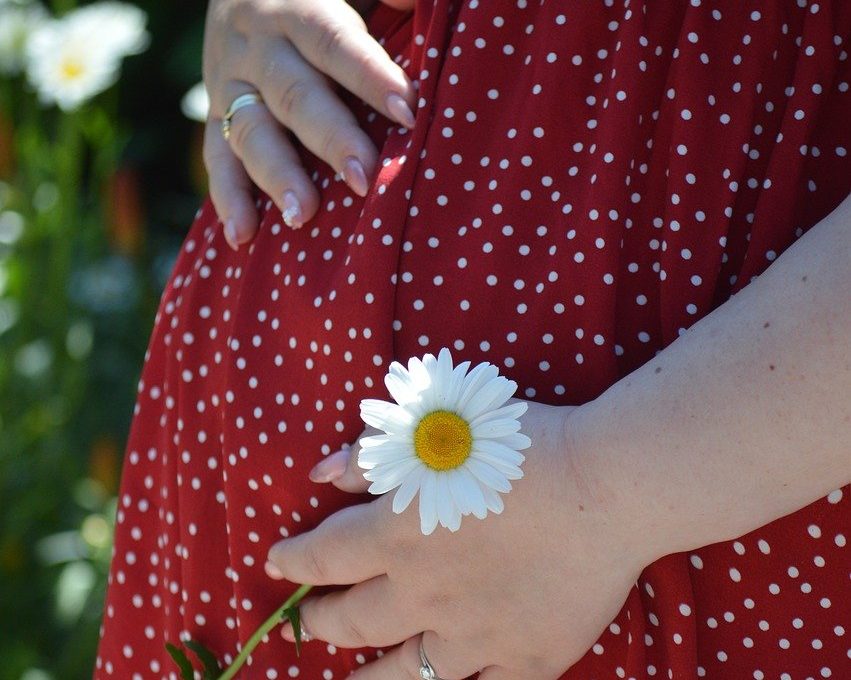Throughout history, herbs and teas have been used for various medicinal purposes, but their safety during pregnancy is often debated. While most herbal remedies are harmless, it’s important to exercise caution, as certain herbs and teas can have adverse effects on a developing fetus. Here are some commonly used herbs and teas that should be avoided during pregnancy :
- Raspberry Leaf Tea: Raspberry leaf tea is often recommended to pregnant women for its potential benefits in preparing the uterus for labor. However, it is advisable to avoid this tea during the first trimester due to its potential uterine stimulant effects, which may increase the risk of preterm labor.
- Peppermint Tea: Peppermint tea is known for its soothing properties, particularly in alleviating digestive issues. While it is generally safe, excessive consumption or use of peppermint oil can stimulate the uterus, potentially leading to complications. Limiting intake to small amounts for flavoring purposes is advised.
- Chamomile Tea: Chamomile tea is widely consumed for its calming effects, but it may not be ideal during pregnancy. Some studies suggest that chamomile tea can cause contractions in the uterus, which may lead to miscarriage or premature birth. For this reason, it is better to err on the side of caution and avoid chamomile tea during pregnancy.
- Dong Quai: Dong Quai is an herb known for its potential to regulate menstrual cycles. However, it is strongly advised to avoid this herb during pregnancy as it can stimulate the uterus, potentially leading to contractions and the risk of miscarriage. Consult with a healthcare professional before using any herbal products that contain Dong Quai.
- Ginseng: Ginseng is often consumed for its energy-boosting properties, but it should be avoided during pregnancy. Ginseng has been linked to an increased risk of congenital disabilities and developmental delays in the fetus. Choosing alternative, pregnancy-safe remedies to boost energy levels is recommended.
- Licorice Root Tea: Licorice root contains a compound called glycyrrhizin, which can increase blood pressure and may lead to complications during pregnancy, such as preterm labor and preeclampsia. It is recommended to avoid licorice root tea during pregnancy.
- Pennyroyal Tea: Pennyroyal is known for its potential abortifacient properties and can lead to miscarriage or damage the liver. It is crucial to avoid pennyroyal tea during pregnancy.
- Black Cohosh Tea: Black cohosh is often used to induce labor or manage menopausal symptoms. However, it can stimulate contractions and should be avoided during pregnancy, as it may increase the risk of preterm labor or birth defects.
- St. John’s Wort Tea: St. John’s Wort is a commonly used herb for mood disorders and depression. However, it may cause hormonal imbalances and interact with medications. It is best to avoid St. John’s Wort tea during pregnancy.
- Yarrow Tea: Yarrow tea has been traditionally used to stimulate menstruation and regulate menstrual cycles. Due to its potential uterine stimulant effects, it is recommended to avoid yarrow tea during pregnancy.
- Saw Palmetto: Saw palmetto is commonly used for prostate health in men but should be avoided during pregnancy. It may interfere with hormonal balance and potentially harm the developing fetus.
- Goldenseal: Goldenseal is often used for its immune-boosting properties. However, it contains berberine, which can cause uterine contractions and should be avoided during pregnancy.
- Ephedra: Ephedra is a stimulant often found in weight loss and energy supplements. It can increase blood pressure and heart rate, which is not safe during pregnancy.
- Aloe Vera: While topical use of aloe vera gel is generally considered safe, consuming aloe vera juice or supplements during pregnancy should be avoided. It can have a laxative effect and potentially cause uterine contractions.
- Senna: Senna is commonly used as a natural laxative. However, it can lead to dehydration and electrolyte imbalance, which can be harmful during pregnancy.
- Parsley: While a small amount of parsley used for culinary purposes is generally safe, consuming large amounts or parsley supplements should be avoided during pregnancy. It has been known to stimulate contractions and potentially cause miscarriage.
- Motherwort: Motherwort is commonly used for its relaxation and anxiety-relieving properties. However, it can stimulate uterine contractions and should be avoided during pregnancy.
It is essential to note that this list is not exhaustive, and pregnant women should consult their healthcare provider before consuming any herbal teas or supplements. Every pregnancy is unique, and individual circumstances may warrant additional precautions or restrictions.
Sources:
- American Pregnancy Association: https://americanpregnancy.org/pregnancy-health/herbal-tea/
- WebMD: https://www.webmd.com
- Mayo Clinic: https://www.mayoclinic.org
The Author:
Pioneerthinking.com – Ingredients for a Simple Life.
Photo. Neelam279
